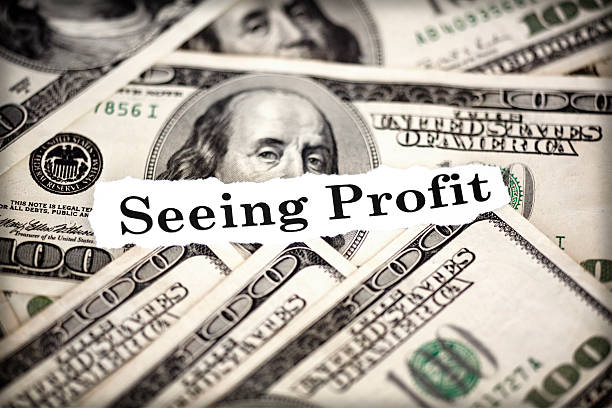Payday loans are a type of short-term, high-interest loan often marketed as a quick solution for people facing urgent financial needs. While these loans can be helpful for individuals who need immediate cash, they come with significant risks, including high fees and a cycle of debt that can be challenging to escape. If you’re considering a payday loan, it’s essential to understand both the benefits and drawbacks before making a decision. Additionally, exploring alternative options can provide you with safer ways to handle financial emergencies. Here’s an in-depth look at the pros and cons of payday loans, along with some practical alternatives.
Table of Contents
ToggleWhat Are Payday Loans?
A payday loan is a small, short-term loan, typically due in full by your next payday. Payday lenders don’t usually require a credit check, and they base loan eligibility on your income and ability to repay, which makes them attractive for people with poor or limited credit histories. However, payday loans are known for their steep fees and interest rates, often amounting to 300% to 500% APR (annual percentage rate), far higher than traditional loans.
Here’s how payday loans generally work:
- You apply for a loan with a lender and provide proof of income, such as a recent pay stub.
- You write a postdated check for the loan amount plus fees, or you agree to an automatic bank draft on your next payday.
- The lender gives you cash or deposits the loan amount into your account.
- On the due date, the lender cashes the check or withdraws the funds from your account.
Because of their high costs and short repayment terms, payday loans are considered one of the most expensive ways to borrow money.
The Pros of Payday Loans
Despite the high costs associated with payday loans, they can have some advantages for certain borrowers in specific situations. Here’s a look at some of the benefits:
1. Quick and Easy Access to Cash
One of the main advantages of payday loans is the speed and simplicity of the application process. Many payday lenders don’t require extensive documentation, and you can often apply online or in person within minutes. Approval is usually fast, sometimes within an hour, and funds can be deposited into your bank account by the next business day. This accessibility can be a lifeline if you’re facing an urgent financial emergency, such as a car repair, medical bill, or utility payment.
2. No Credit Check Required
For individuals with poor or limited credit histories, payday loans are accessible since most payday lenders don’t perform credit checks. Traditional loans typically require good credit, so payday loans can be an option for those who don’t qualify for other forms of credit. Approval is often based solely on income and your ability to repay, making payday loans accessible to a broader range of people.
3. Useful for Short-Term Emergencies
Payday loans are designed to be repaid quickly, often within two to four weeks. This short repayment period means they’re intended for brief financial gaps, not long-term borrowing. If used carefully and repaid on time, payday loans can provide the funds needed to cover an unexpected expense without long-term financial commitment.
The Cons of Payday Loans
Despite the potential benefits, payday loans come with serious risks that can outweigh their advantages. Here are some of the most significant drawbacks:
1. High Fees and Interest Rates
Payday loans are known for their exorbitant interest rates and fees, which can make repayment difficult. For instance, a $500 payday loan might come with a $75 fee for a two-week term, which equates to a 391% APR. These high costs mean borrowers often end up paying far more than they originally borrowed, and failure to repay on time leads to additional fees, making the loan even more costly.
2. Risk of a Debt Cycle
Because payday loans have such short repayment terms, many borrowers struggle to repay them by the due date, especially if they’re already in a tight financial situation. If a borrower can’t repay the loan on time, they may roll it over, extending the loan and accruing additional fees. This can lead to a cycle of debt, where borrowers take out new loans to pay off old ones, accumulating debt that becomes nearly impossible to escape.
3. Impact on Bank Account and Finances
Payday lenders often require access to your bank account, which they use to withdraw payments automatically. If you don’t have enough money in your account to cover the payment, you could face overdraft fees from your bank, along with additional fees from the lender. This can damage your financial standing and make it even harder to get back on track financially.
4. Potential for Predatory Lending Practices
Some payday lenders are known for their predatory practices, such as hiding fees, encouraging rollovers, and targeting vulnerable individuals who may not fully understand the costs involved. These practices can lead to further financial hardship and create a cycle of dependency on payday loans.
Alternatives to Payday Loans
Given the high costs and risks of payday loans, exploring alternative options can be a smarter way to handle financial emergencies. Here are several safer alternatives to consider:
1. Personal Loans from Credit Unions
Credit unions often provide small personal loans with lower interest rates than payday lenders. Many credit unions offer “payday alternative loans” (PALs) designed specifically for short-term borrowing with reasonable interest rates and repayment terms. These loans may require membership in a credit union, but membership is generally easy to obtain, and credit unions typically offer more flexible lending terms.
2. Borrowing from Friends or Family
If you’re in a financial bind, borrowing from a trusted friend or family member can be a more affordable option than a payday loan. While it’s important to establish clear terms for repayment to avoid misunderstandings, friends or family are unlikely to charge the same high interest as payday lenders, making it a much more cost-effective solution.
3. Employer Pay Advances
Some employers offer paycheck advances as an employee benefit, allowing workers to access a portion of their earnings before payday. If your employer provides this option, it can be a great way to cover expenses without incurring high-interest debt. Companies such as Earnin and DailyPay also partner with employers to offer earned wage access, allowing you to access part of your paycheck early, typically for a small fee or no fee.
4. Installment Loans
Many financial institutions, including online lenders, offer small installment loans with manageable interest rates and more extended repayment periods. Unlike payday loans, installment loans are repaid over time in smaller, regular payments, reducing the risk of a debt cycle. These loans typically involve a credit check, but they are generally less expensive than payday loans and can be a more manageable way to borrow.
5. Nonprofit Assistance Programs
Nonprofit organizations and community groups often offer financial assistance for those facing emergencies. Organizations such as the Salvation Army, United Way, and local charities may provide funds, grants, or low-interest loans for essential expenses like rent, utilities, and groceries. Nonprofit credit counseling services can also help you manage debt and create a budget, helping you avoid the need for payday loans in the future.
6. Using a Credit Card (Cautiously)
If you have a credit card, using it for short-term needs can be less expensive than a payday loan, provided you pay off the balance quickly to avoid high-interest charges. Credit cards generally have lower interest rates than payday loans, and while they should be used cautiously, they can be a safer option for short-term expenses when managed carefully.
7. Setting Up an Emergency Fund
While it may not be an immediate solution, building an emergency fund over time can provide a buffer for future financial crises. Start by saving a small amount each month, and aim for a fund that covers at least three to six months of essential expenses. An emergency fund allows you to handle unexpected costs without resorting to high-interest payday loans.
Final Thoughts
While payday loans offer quick access to cash, their high fees and interest rates often make them an impractical and risky solution. The cycle of debt associated with payday loans can be challenging to break, leaving many borrowers in a worse financial situation. Before opting for a payday loan, it’s worth exploring alternatives, such as credit union loans, paycheck advances, or borrowing from friends and family.
In emergencies, having a clear understanding of your options can help you make informed decisions that protect your financial well-being. By considering alternatives and planning for future expenses, you can avoid the pitfalls of payday loans and build a more secure financial foundation.

